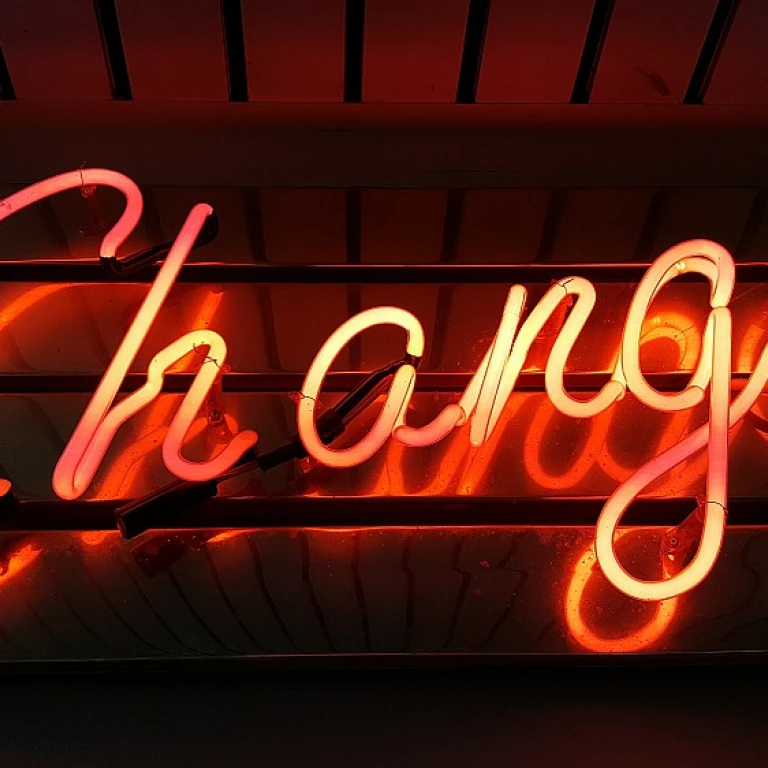The rise of artificial intelligence in HR
Artificial intelligence: reshaping HR - past and present
Artificial intelligence (AI) has seamlessly woven itself into the fabric of our daily lives. From virtual assistants like Amazon Alexa to smart recommendations on Netflix, AI's subtle yet significant impact is evident. HR is no stranger to this transformation.
AI's reach into human resources began with basic automation. Simple tasks like sorting resumes and scheduling interviews became streamlined. Gartner reported in 2020 that over 75% of organizations use some form of AI in HR.
HR professionals: adapting to AI
Take a step back. Remember the skepticism around the internet in the early '90s? The same doubt surrounded AI in HR initially. Professionals worried about job security. Data from McKinsey shows that 60% of jobs could see at least 30% of activities automated, but only a fraction may face full automation.
IBM’s Watson: a case in point
IBM’s Watson has been a trailblazer in AI adoption in HR. Watson assists in tasks that are monotonous and data-heavy. Think about sifting through thousands of job applications. With AI's precision, HR teams have saved countless hours. According to IBM, this allows professionals to focus on strategic decision-making.
The evolution: from data collection to real-time analysis
Gone are the days when HR relied solely on gut instinct. Today, it's all about data-driven insights. AI tools collect vast amounts of data, presenting it in a way that's easy to understand. Real-time feedback systems are now the norm. University of Virginia's study highlighted a 20% increase in employee performance with real-time feedback mechanisms.
Looking at the broader picture, organizations from New York to Europe have embraced AI in HR. For example, a Middle East-based firm saw a 15% boost in talent acquisition and a 25% reduction in hiring time after implementing AI-driven tools.
The intertwining of AI and HR isn't without its challenges. Privacy concerns and ethical considerations remain. But as Nick Gallimore from IBM pointed out, “AI is not about replacing jobs, it's about augmenting human capabilities.” Learn more about how AI is transforming the future of HR analytics here.
AI in talent acquisition: a game changer
AI applications in talent acquisition
Artificial intelligence has drastically reshaped the talent acquisition process. With the latest advancements, companies now leverage AI to streamline the recruitment phase, from identifying potential candidates to conducting initial assessments. According to a report by Gartner, 35% of companies had already used AI in sourcing and screening candidates by 2021.
One prominent example is IBM’s Watson Talent platform, which utilizes AI to analyze job descriptions and match them with potential candidates’ resumes. The platform quickly identifies the best fit, reducing the time recruiters spend on manual review. Amazon also uses AI-driven systems, albeit with some controversies regarding alleged biases against certain demographics. In 2018, Amazon had to abandon an AI recruitment tool due to its preference for male candidates. This underpins the critical importance of maintaining fairness and transparency in AI systems.
Making recruitment efficient with AI
AI-powered tools such as chatbots and virtual assistants significantly enhance the efficiency of the initial recruitment steps. With companies like Google incorporating AI chatbots for initial job applicant interviews, the load on HR teams is considerably reduced. Chatbots can answer routine queries, schedule interviews, and even conduct preliminary evaluations, allowing human recruiters to focus on more strategic tasks.
A study by McKinsey states that deploying AI increases the efficiency of recruitment by up to 30%. This is largely because AI mitigates time-consuming tasks, providing valuable insights and enabling recruiters to make more informed decisions. Moreover, AI solutions can process real-time feedback from candidates, ensuring a smoother and more engaging recruitment experience.
Enhancing candidate experience and engagement
AI is also transforming the candidate experience. Aon offers tools that use machine learning to provide a seamless and personalized candidate journey. AI's capabilities in natural language processing ensure that candidates receive relevant and timely communication, bolstering their engagement with the recruitment process.
The U.S.-based company SHL uses AI for competency-based assessments, which predict a candidate's performance and cultural fit more accurately than traditional methods. By analyzing thousands of data points from previous hires and their performance metrics, AI-driven solutions can forecast which candidates are likely to excel and stay longer within the organization.
Why AI in hiring isn’t just a trend
Organizations like the Society for Human Resource Management (SHRM) emphasize the potential of AI in enhancing talent acquisition strategies. AI provides HR professionals with data-driven insights that improve decision-making and talent management.
Evidence from multiple case studies, including those from the University of Virginia, shows that adopting AI tools in recruiting leads to improved hiring quality and a more diverse workforce. It’s clear that AI is not just a passing trend but a crucial asset in the recruiting process. Wondering about potential downsides? AI in hiring isn’t without challenges, but its transformative benefits far outweigh the cons.
Considering the future implications, it’s essential to explore discussions around whether AI will replace human resources in its entirety or if it will evolve as an indispensable tool for HR teams. This conversation remains critical as organizations continue to embrace AI-driven technologies.
Enhancing employee engagement with AI
AI tools fueling better employee interactions
When it comes to boosting employee engagement, artificial intelligence offers some hefty advantages. A standout example is IBM's Watson-powered chatbot used by H&R Block. This tool assists in answering employee queries in real time, streamlining administrative tasks and freeing up HR professionals for more strategic work (source).
AI also plays a significant role in analyzing employee data to provide valuable insights for employee engagement strategies. By using machine learning algorithms, businesses like Amazon have been able to accurately predict churn rates within their teams, leading to proactive measures to boost retention rates. According to a study by Gartner, companies utilizing data-driven insights from AI report a 25% increase in employee engagement (source).
Monitoring and enhancing performance
Another area where AI shines is in performance management. Tools like Lattice use AI to gather continuous real-time feedback from employees, providing managers with a holistic view of employee performance. This helps companies like Aon to increase the accuracy of their performance evaluations and tailors learning development plans accordingly (source).
Through natural language processing, AI can analyze sentiment in employee communications, helping leaders and HR teams gauge employee engagement levels more accurately. Nick Gallimore, Director of Talent Transformation at Udacity, emphasized the importance of this technology, stating, "AI-driven sentiment analysis helps us understand how our employees are really feeling, which informs better decision making for enhancing our work environment" (source).
Real-time problem solving with AI-driven tools
AI-powered chatbots and virtual assistants also come into play for employee engagement. These tools can handle queries round the clock, providing instant responses and reducing wait times significantly. For example, during the pandemic, Google's Dialogflow was employed by several organizations in Europe and the Middle East to assist employees working remotely, ensuring they felt supported despite geographical barriers (source).
AI in human resources isn't just about automating tasks; it's about improving the employee experience. Investing in AI tools not only aids in better managing human capital but also fosters a more engaged and productive workforce. It's no wonder why businesses worldwide are swiftly adopting AI for performance management and employee engagement.
AI-driven performance management
How ai is changing performance management
Artificial intelligence (AI) has quickly become a cornerstone in enhancing performance management within human resources. By leveraging advanced technologies, organizations can yield significant benefits, optimize workflows, and ultimately improve employee satisfaction and productivity.Accurate performance metrics
One of the major perks of using AI in performance management is its ability to provide more accurate and unbiased performance metrics. With AI, companies can analyze vast amounts of data to identify performance trends and patterns. This data-driven approach leaves little room for human error or bias. In turn, it fosters a fairer evaluation process that is based on real-time data. According to Gartner, up to 75% of HR departments are expected to implement AI-driven productivity analysis tools by 2025.Real-time feedback
AI enables the real-time feedback loop, which is instrumental in keeping employees aligned with organizational goals. Tools powered by AI can continuously analyze performance indicators and provide immediate feedback. This allows managers to make swift adjustments, offering suggestions to employees almost instantly. Nick Gallimore, an HR expert at Advanced, highlights that AI's ability to provide real-time feedback is transforming traditional annual reviews into continuous, ongoing processes.Personalized learning and development
AI-powered tools can also tailor learning and development programs to meet individual employee needs. By analyzing performance data, these tools can recommend personalized training and development plans, ensuring employees acquire the skills they need to excel in their roles. For instance, IBM Watson has been instrumental in helping companies curate specialized learning paths, resulting in more engaged and skilled workforces.Enhanced decision-making
Decisions concerning promotions, raises, and performance improvements become more straightforward with AI. AI algorithms can process performance data and compare it to established benchmarks, making these decisions more objective. McKinsey has reported that businesses using AI for performance management have seen a 15-20% increase in employee productivity due to more informed and timely decision-making.Reducing administrative tasks
Administrative tasks can be time-consuming and take focus away from more critical responsibilities. AI tools such as chatbots and virtual assistants can handle scheduling, performance reviews, and routine inquiries, allowing HR professionals to focus on strategic planning. Business News Daily reports that AI can save HR departments up to 40% of their time on administrative work.Case studies and examples
Experiences from companies like Google and Amazon illustrate the power of AI in revolutionizing performance management. Google uses AI to analyze peer feedback to identify high-performing employees, while Amazon’s AI systems monitor employee productivity in real-time to provide immediate feedback. Both companies have reported increased productivity and employee satisfaction. While AI-driven performance management tools clearly provide numerous benefits, one must also be aware of the challenges and potential controversies (covered extensively in another section of this article). But the overall consensus among HR professionals and industry reports from sources like the University of Virginia and Aon indicate a promising future for AI in transforming work environments, fostering not just efficiency but also employee engagement and satisfaction.The benefits of AI in HR for organizations
Boosting productivity through streamlined administrative tasks
Artificial intelligence has proven itself as a valuable tool in alleviating the burden of repetitive administrative tasks in HR. A study by McKinsey illustrates that 56% of the time spent on routine tasks could be automated using AI. This allows HR professionals to focus on more strategic initiatives. For instance, chatbots and virtual assistants can handle employee queries about policies, leave balances, and other FAQs, freeing up valuable time for HR teams.
Enhancing performance management and decision-making
AI tools are reshaping performance management, providing data-driven insights that enhance decision-making. According to Gartner, effective performance management practices driven by AI can improve employee performance by up to 20%. Machines can analyze vast amounts of data and provide real-time feedback, enabling a more agile and accurate assessment of employee productivity. As Nick Gallimore from IBM states, "AI-powered performance management allows for continuous feedback, making appraisals more relevant and timely."
Data-driven talent management and acquisition
Talent management is another significant area where AI is making a mark. Organizations can leverage machine learning algorithms to screen resumes and predict candidate success, ensuring a better fit for the company's culture and job requirements. A report from IDC reveals that 47% of HR leaders are investing in AI tools for talent acquisition. The use of AI not only speeds up the recruitment process but also improves the quality of hire and reduces bias.
Real-time employee engagement and retention
Improving employee engagement and retention remains a top priority for many companies. AI can analyze employee sentiment through natural language processing and identify potential risks of turnover. By providing real-time feedback and personalized learning and development programs, organizations can enhance the overall employee experience. Research by SHRM indicates that companies using AI for employee engagement reported a 30% increase in retention rates.
Cost savings and efficiency
AI not only delivers on performance but also drives significant cost savings. The automation of time-consuming tasks such as payroll processing, compliance reporting, and benefits administration can lead to substantial financial benefits. Aon estimates that companies using AI in HR can reduce operational costs by an average of 30%, allowing businesses to reinvest those savings in growth and innovation.
Case studies: successful AI implementation in HR
Transformation stories: how AI reshaped human resources
It's not just about using artificial intelligence to manage employee records or predict turnover rates. AI is actively transforming the way organizations function, creating tangible benefits. Let's dive into some real-world examples shedding light on how AI is making a difference in HR.
Unilever: Revolutionizing recruitment
Unilever, a global giant, tweaked its hiring process with artificial intelligence, resulting in impressive gains. They implemented AI to sift through resumes and even conduct initial assessments via automated video interviews. The AI analyzed facial expressions, tone, and word usage, playing a crucial role in selecting potential candidates. As a result, Unilever noticed a 90% time reduction in their hiring process and maintained a diverse talent pool. (Source: Unilever)
IBM: Personalized learning and development
IBM, known for its innovative streak, leverages AI to craft personalized learning and development paths for employees. Using data-driven insights, AI identifies skill gaps and recommends targeted training modules. As Laura Osburn from IBM pointed out, “AI helps us tailor learning experiences uniquely suited to each individual’s needs, driving engagement and upskilling simultaneously.” This approach led to a noticeable improvement in employee performance and satisfaction rates. (Source: IBM)
Amazon: AI-driven employee engagement
Amazon adopted AI to enhance employee engagement and productivity. By employing natural language processing, the company developed chatbots and virtual assistants that provide real-time feedback and support to employees. These AI tools are designed to answer HR-related queries instantly, reducing time-consuming tasks for HR professionals. With these innovations, Amazon observed a significant boost in employee satisfaction and retention rates. (Source: Amazon)
Aon: Performance management excellence
Aon, a leading insurance broker, used AI to modernize their performance management strategies. AI systems now provide valuable insights into employee performance, helping managers make more informed decisions. With these tools, Aon can offer real-time feedback and continual support, fostering a culture of continuous improvement and engagement within the organization. According to Aon's internal reports, this led to a 20% increase in overall productivity. (Source: Aon)
Looking at the global scale
From India to New York, businesses across the world are reaping the rewards of implementing AI in HR. In the Middle East, AI's uptake in talent acquisition has surged, with 75% of companies reporting higher efficiency rates. Meanwhile, in Europe, 60% of HR professionals believe that AI tools have become indispensable. These numbers aren't just statistics; they reflect a sweeping change in how organizations operate, benefiting both the companies and their employees. (Source: McKinsey, Gartner)
Challenges and controversies in AI adoption
Common concerns in AI implementation
The surge of artificial intelligence in human resources isn’t without its bumps. Concerns primarily revolve around employee privacy, data security, and potential biases ingrained in AI algorithms.
Employee Privacy: With AI's capacity to process and analyze large datasets, there’s a lot of worry about maintaining the privacy of employee data. According to a SHRM report, 67% of HR professionals are concerned about how personal data will be used.
Data Security: Protecting sensitive employee information is another hot topic. IBM's Cost of a Data Breach Report 2023 highlights that the average data breach cost in the U.S. is around $9.44 million. HR departments must be vigilant in adopting secure AI tools to avoid such expensive mishaps.
Bias in AI: AI algorithms can unintentionally replicate biases present in historical data. A study by the University of Virginia found that bias in training data can result in discriminatory hiring practices. This risk underscores the importance of careful algorithm oversight. Jason Bloomberg from Forbes notes, “Combating inherent bias in AI systems requires rigorous testing and awareness.”
Ethical considerations and bias
An ongoing conversation about the ethical implications of AI in HR persists. Can AI respect human dignity, and can we ensure it serves all employees fairly?
Transparency: Organizations must be upfront about how AI is used and the data it leverages. Transparency fosters trust and mitigates fears of misuse. Gartner reports that by 2025, 60% of HR functions will likely focus on transparency to alleviate AI-related concerns.
Fairness: Ensuring fairness in AI-driven decisions is crucial. Nick Gallimore, Director of Talent Transformation at Advanced, states, “Fairness in AI is non-negotiable, and continuous monitoring and adjustment of AI models are critical to achieving this.”
Resistance to change
Adjusting to AI in HR isn't just about technology; it's also about people and culture.
Employee Resistance: Employees often fear AI might replace them. A McKinsey survey indicated 49% of U.S. employees worry about job security due to AI. This hesitation can slow down AI adoption.
Organizational Culture: The shift to AI also extends to corporate culture adjustments. Leaders must champion AI initiatives and incorporate AI into the organizational fabric, making employees comfortable with the change.
Training and Development: Upskilling employees to work alongside AI tools is vital. Continuous learning programs can bridge the skill gap and reduce resistance, fostering a collaborative environment between humans and AI.
Case studies of failed AI implementations
Learning from past mistakes provides a valuable roadmap for future AI projects.
Amazon's Hiring Algorithm: In a well-documented case, Amazon had to scrap its AI hiring tool because it favored male candidates, reflecting gender biases from historical data. This serves as a cautionary tale about the importance of monitoring AI outcomes and ensuring unbiased training data.
Microsoft's Chatbot: Microsoft's AI chatbot, Tay, had to be taken offline in under 24 hours after it started tweeting inappropriate and offensive content. This incident highlights the critical need for proper oversight and ethical AI use.
While AI's integration in HR comes with challenges, addressing these concerns head-on with transparency, fairness, and continuous improvement can pave the way for a more efficient, inclusive future.
Future trends and predictions for AI in HR
Predictive analytics and its role in future HR
Predictive analytics is set to fundamentally change HR processes, giving deeper insights and helping with strategic decision-making. HR professionals can now use data-driven insights to foresee employee performance and pinpoint development areas. According to a report by McKinsey, organizations using predictive analytics are 2.9 times more likely to report improved employee engagement. This isn't just about looking at past performance but about predicting future trends and behaviors.
The integration of machine learning in HR systems
Machine learning (ML) is no longer a futuristic concept for HR departments. Technologies from IBM and Google are being harnessed to analyze vast amounts of HR data efficiently. For example, machine learning algorithms are becoming integral in automated résumé screening and candidate matching, drastically reducing the time-consuming tasks recruiters face. It allows HR to focus more on human interactions and less on administrative tasks.
Ai chatbots and virtual assistants proliferating HR
Chatbots and virtual assistants are evolving from mere fancy tools to significant contributors in HR. They assist employees 24/7, answering common HR queries, scheduling meetings, and even providing real-time feedback on tasks. According to Gartner, chatbots can handle 80% of standard HR questions, freeing up valuable time for HR professionals to engage in more complex tasks.
Natural language processing revolutionizing hr communications
Natural Language Processing (NLP) is transforming HR communications by making interactions more intuitive and personalized. NLP tools analyze employee feedback in real time, providing HR with valuable insights into employee sentiment and well-being. A survey by Business News Daily highlights that 70% of companies reported improvements in employee engagement thanks to NLP tools.
Future trends in ai-driven talent management
The way forward in talent management involves leveraging AI for enhanced strategies. Systems like Amazon's AI recruitment tools help in identifying and attracting the right talent. AI-driven platforms provide richer data, highlighting not just a candidate's skills but also cultural fit, thus improving talent acquisition's overall effectiveness.
AI's impact on employee performance and development
AI doesn't only forecast performance; it also supports development. Real-time feedback systems, supported by AI, help employees understand their strengths and areas of improvement immediately, fostering continuous learning and growth. According to research from the University of Virginia, organizations that use AI-driven performance management systems see a 15% increase in employee performance.
Idc's prediction: a shift to a data-driven HR approach
IDC predicts a massive shift to a data-driven approach in HR. With the integration of AI, HR departments can make better, more informed decisions. This evolution means HR teams will be less reactive and more proactive, anticipating challenges and preparing strategies ahead of time. This can significantly enhance the overall employee experience and operational efficiency.
Addressing data privacy concerns in AI adoption
Despite all the benefits, the AI integration in HR does come with its set of challenges, particularly concerning data privacy and ethical considerations. Companies must ensure that they navigate these challenges carefully, maintaining transparency with employees about how their data is used. Nick Gallimore from Aon emphasizes the importance of ethical AI use, advising HR professionals to remain vigilant and proactive in safeguarding employee data.Remember, everything with AI in HR isn't sunshine and roses, but the potential benefits are immense if managed correctly. Check out our detailed article on https://www.hr-analytics-trends.com/blog/how-artificial-intelligence-in-hr-is-transforming-employee-performance-management for more insights into AI's transformative role in HR, specifically in performance management.











